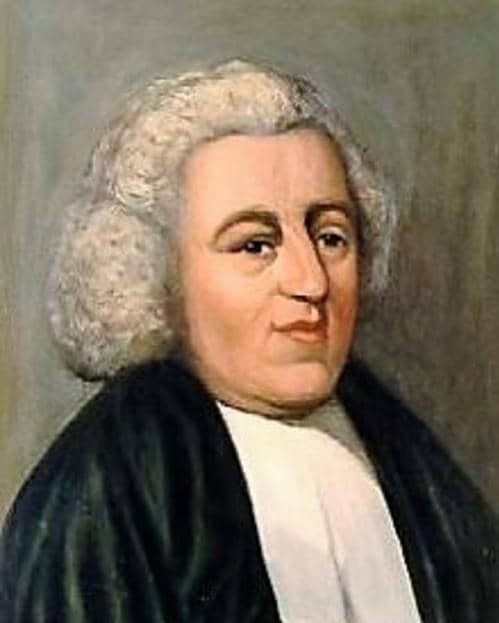‘All that the Father giveth me shall come to me; and him that cometh to me I will in no wise cast out.’ (John 6:37)
Some texts of Scripture have been much used by the Lord to bring comfort and assurance to his people. John 6:37 is one notable example. Many of God’s people testify to the help and comfort it has brought to them in all kinds of situations.
A text to live by
Fundamentally, John 6:37 is a text to live by. It comes to us with comfort and power in many different circumstances of life. To begin with, it is a text for seasons of conviction of sin, that is, for those occasions when the Lord reveals to a person ‘the plague of his own heart’ and the just deserts of sin. This discovery may be so traumatic as to make a person despair of all hope of forgiveness. The great question then is, ‘Will Christ receive a sinner like me?’ These words, ‘Him that cometh to me I will in no wise cast out’, assures us that Jesus will not turn us away.
Brownlow North, sometimes called ‘the John the Baptist of the 1859 revival’, found this at his conversion. He was born into a wealthy family and lived the first forty-four years of his life indulging himself in all the pleasures and vices of high society. But then, for months, he experienced terrifying convictions of sin. These were so disturbing that his health began to break down. He was brought to the very brink of despair, and it was only John 6:37 that kept him from plunging into that abyss. Of this experience he wrote, ‘I was very near death; I was almost despairing. The only thing that kept my head above the water was the promise, “Him that cometh to me, I will in no wise cast out.” I repeated it again and again, and prayed very earnestly.’ Brownlow North later became an evangelist, used by God to lead many sinners to Christ. His biographer says that he never wearied of quoting John 6:37, and that he never failed to direct ‘the anxious and returning sinner’ to the latter half of that verse.

Temptation
John 6:37 is also a text for times of temptation. Once a person has turned to Christ for salvation, Satan endeavours to drive him away from the Saviour. He tempts him to think that Christ will no longer receive him, or that he has committed ‘one sin too many’, and that Christ has now finished with him. Here again John 6:37 ministers comfort. John Bunyan testified to the power of this text to deliver him from this temptation. ‘This Scripture’, he wrote in Grace Abounding to the Chief of Sinners, ‘also did now most sweetly visit my soul; “And him that cometh to me I will in no wise cast out.” Oh! The comfort that I have had from this word “in no wise”! As who should say, “By no means, for nothing, whatever he hath done.” Satan would greatly labour to pull this promise from me, telling of me, “That Christ did not mean me and such as I, but sinners of a lower rank, that had not done as I had done.” But I should answer him again, “Satan, here is, in these words no such exception, but him that comes, him, any him: him that cometh to Me I will in no wise cast out”.’ Later, in the same work, Bunyan wrote, ‘O! What did I now see in that blessed sixth of John: “And him that cometh to me I will in no wise cast out”. Now I began to consider with myself, that God hath a bigger mouth to speak with, than I had a heart to conceive with.’
Times of trial
Here too is a text to support the believer in seasons of trials. The trials and tribulations of life can make the believer grow weary. Where can he find refuge when his friends, family, or associates desert him? The answer is in Christ, who will in no wise cast him out. John Kershaw, a Baptist pastor in Rochdale, had his fair share of difficulties and trials as a gospel minister. He said that the two halves of John 6:37, ‘have long been my stay and support as I travel along in the wilderness; and midst the various trials I have met with I do not want any better or firmer, for I know they will never fail’.

A text to die by
John 6:37 is a text that can bear you up in the season of death. The hour of death may be a time of terror even for the godly. Faced with ‘the king of terrors’, the greatest faith may tremble, especially if Satan and conscience accuse the believer of sins committed ‘against the light’. Perhaps the saintly Scot, James Durham, knew something of this. It is reported that on his deathbed he said to a friend, ‘For all I have preached or written, there is but one Scripture I can remember, or dare grip to; tell me if I dare lay the weight of my salvation upon it, “Him that cometh to me I will in no wise cast out”.’ His friend replied, ‘You may indeed depend on it, though you had a thousand salvations to hazard.’ On hearing this, we are told, a gleam of joy lit up his face, under the radiance of which he was ushered into the glory and brightness of eternity.
John 6:37 is a solid foundation that can bear the sinner up at death even though he has built his whole life on the sand. Bishop Butler, who lived in the eighteenth century, found this to be the case. He had tried during his ministry to defend Christianity by the use of reason, but his writings show little evangelical warmth. He seems to have depended for personal salvation on his own works rather than on Christ. But in his last hours this proved to be no preparation at all for facing a holy God.

The bishop had the following conversation with his chaplain: ‘Though I have tried to avoid sin, and to please God to the utmost of my power; yet, from being conscious of my constant weakness, I am afraid to die.’ In reply his chaplain said, ‘My lord, you forget that Jesus Christ is a saviour.’ ‘True,’ Bishop Butler answered, ‘but how shall I know that he is a Saviour for me?’ To which his chaplain replied, ‘My lord, it is written, “Him that cometh to me I will in no wise cast out”.’ ‘True,’ said the bishop, ‘and I have read that Scripture a thousand times, but I never felt its full value till this moment. Stop there, for now I die happy.’ He who dies clutching these words of Christ dies happily indeed.
Those who, in their last hours, are able to lean on John 6:37, can face death with boldness. They can walk triumphantly into eternity, as the dying testimony of John Newton shows. A few days before Newton died, two friends called on him, to enquire how he was. His reply was, ‘I am going to heaven on two crutches. My right-hand crutch is, “All that the Father giveth me shall come to me”; and my left-hand crutch is, “Him that cometh to me I will in no wise cast out”.’
Do you lay your whole weight, both for time and eternity, upon the two-fold promise of John 6:37? May the Lord enable us to take hold of it with the sure grip of faith!




